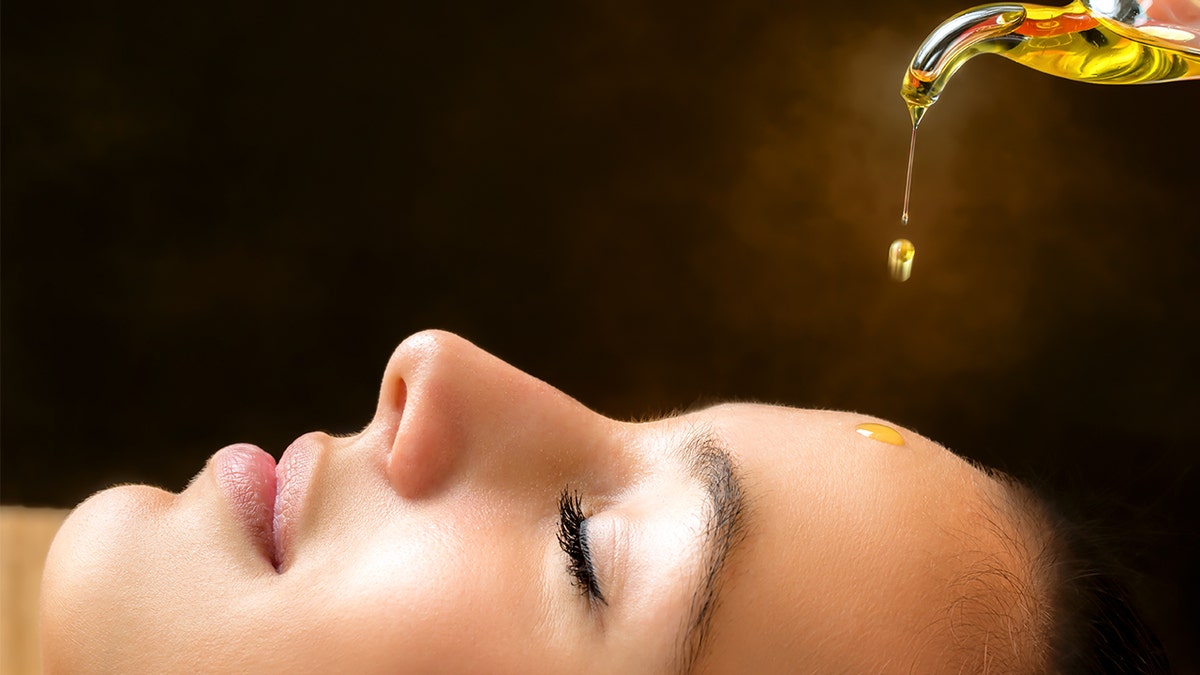
Experts weigh in on whether or not these four natural anti-aging alternatives work (iStock)
In anti-aging skin care, there are many alternative treatments you'll come across, from skin-needling to Ayurvedic medicine to a diet detox, but all of them aren't created equal.
We asked skin care professionals which ones are worth your time and money—and which ones you can skip. (We've also got loads of good natural skin care tips and tricks, from coconut oil to rosehip oil based moisturizers, to masks containing that anti-bacterial beauty balm, honey.) Below, we break down everything you need to know about four popular treatments.
RELATED: 6 MOST IMPORTANT BEAUTY PRODUCTS TO BUY ORGANIC
AYURVEDIC MEDICINE
This system of traditional Indian healing relies on techniques such as diet changes, breathing exercises and botanical medicine to treat patients based on their dosha, or "mind-body type."
Does it work?
"The doshas seem to line up with skin types we're familiar with," says Jasmina Aganovic, an MIT-trained chemical and biological engineer and founder of the Stages of Beauty skin-care line. "The Vata dosha typically coincides with dry skin," she says, "Pitta coincides with sensitive; and Kapha, with oily or combination skin."
Even so, there's no scientific evidence that treating your skin based on your dosha is beneficial, says Susan Stuart, MD, a dermatologist in San Diego. However, there is proof that many of the powerhouse plant-based ingredients used in Ayurvedic medicine can help you look younger.
For example, "research shows that turmeric and ginger, both used frequently in Ayurvedic medicine, can reduce wrinkles," says Shyam Gupta, PhD, a chemist and founder of Bioderm Research, a cosmetic research company in Scottsdale, AZ. And several studies show that grapeseed extract, another Ayurvedic ingredient, protects against photodamage.
RELATED: I TRIED DRINKING FRESH TURMERIC JUICE EVERY DAY FOR A MONTH—HERE’S WHAT HAPPENED
Bottom Line
Try healing Ayurvedic recipes, and products with Ayurvedic ingredients like turmeric and ginger, but don't overhaul your beauty regimen based on your dosha just yet.
ALKALINE DIET
A few studies have shown acidity can be damaging to the body, so it's thought by some that eating mostly alkaline-forming (or, acid-lowering) foods like fruits and vegetables may slow skin aging.
Does it work?
There's no research proving this theory. Our bodies do a good job of regulating acidity regardless of diet. But there is anecdotal support: "My clients who eat 80% alkaline-forming foods notice fewer lines and more hydrated skin in weeks," says author and nutritionist Kimberly Snyder.
Bottom Line
The diet won't erase wrinkles, but eating more fruits and veggies improves overall health (including preventing weight gain)—and that can only be good for skin.
SKIN NEEDLING
In this procedure, you roll a small needle-covered device over your face to create tiny, temporary pricks in your skin, which may trigger a healing response (similar to what occurs after a cut), leading to a smoother complexion.
Does it work?
San Francisco dermatologist Kathy Fields, MD, who helped develop a home skin needling package with a peptide-and retinol-based serum for Rodan + Fields, says her company's analysis shows using it can induce skin's collagen-building process and improve penetration of anti-aging ingredients applied afterward. But there aren't peer-reviewed studies of at-home devices, and Dr. Stuart believes needling is safer and more effective done in a dermatologist's office with a pro version of the tool.
Bottom Line
Used before a retinol-based product, an at-home skin-needling tool can smooth skin, but it's likely the retinol doing most of the work. Check with your dermatologist first.
RELATED: 11 OLD FASHIONED BEAUTY TREATMENTS GRANDMA USED THAT YOU SHOULD TOO
DIET CLEANSE
Some experts think that temporarily restricting your diet (whether with a cleanse, a juice fast or a similar detox plan) can clarify your complexion and make your skin glow.
Does it work?
"Most people's skin improves when they do a cleanse because they're removing foods that have a pro-inflammatory effect—and inflammation is the root of many skin issues, including rosacea, acne and premature aging," says Frank Lipman, MD, an integrative physician and founder of Eleven Eleven Wellness in New York City. Although it's best to have an integrative medicine expert guide you in the cleansing process, it's possible to see benefits on your own.
RELATED: 7 DIY FACE MASKS AND SCRUBS THAT ACTUALLY WORK
Dr. Lipman says avoiding caffeine, sugar, dairy, gluten and meat for a few weeks can offer a short-term boost to your complexion. Research supports this theory to some extent (gluten intolerances have been linked to skin issues for some people, and several studies have shown a correlation between dairy consumption and acne). However, Mary Lupo, MD, a dermatologist, says there are no studies showing that a temporary cleanse—no matter what types of food are restricted—can reduce cellular inflammation or provide long-term skin benefits.
Bottom Line
A cleanse won't turn back the clock, but eating less sugar and fewer starchy carbohydrates could be beneficial in the long run, and help you determine what's potentially throwing off your body chemistry. "These foods can spike blood glucose levels, and that accelerates aging of all organs, including the skin," says Dr. Lupo.








































